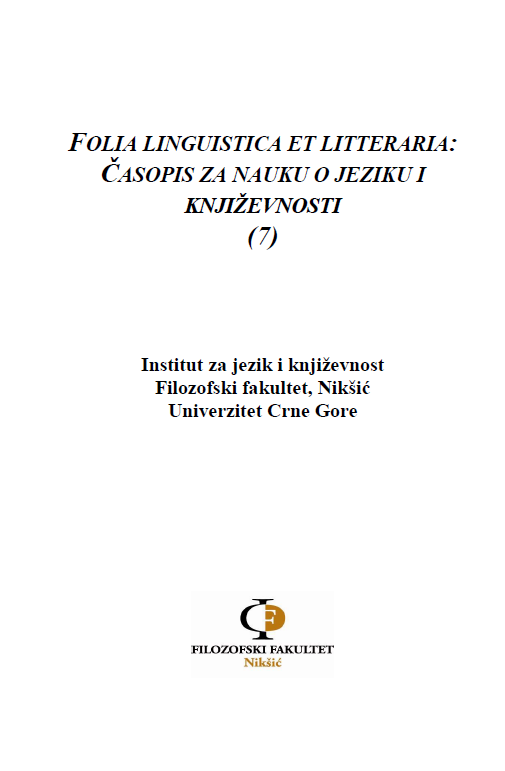CONVENTIONALITY IN ILLOCUTIONARY ACTS AND RELEVANCE THEORY
CONVENTIONALITY IN ILLOCUTIONARY ACTS AND RELEVANCE THEORY
Author(s): Bledar ToskaSubject(s): Theoretical Linguistics, Applied Linguistics, Social Theory
Published by: Filološki fakultet, Nikšić
Keywords: conventionality; Speech Act Theory; illocutionary acts; Relevance Theory;
Summary/Abstract: Conventions in language are generally considered to be socially and linguistically accepted standards or norms which have been used over time as a practice to facilitate social and linguistic interaction between members of a speech community. They are socially constructed and reproduced by individuals of a speech community and relative to linguistic context as well as time and place. Some instances of these standards may include orthographic, phonological, morphological systems, sentence meaning or its interpretation. Firstly, this paper briefly discusses conventionality issues in fulfilling illocutionary acts through certain conditions and rules according to the Speech Act Theory which Austin (1975) and Searle (1969) developed. Performing an illocutionary act of promising or requesting, for instance, involves following and recognizing four major rules, namely, the essential, sincerity, preparatory and propositional rules, which are offered as instructions to speakers in order to enable successful communication.
Journal: Folia Linguistica et Litteraria
- Issue Year: 2013
- Issue No: 7
- Page Range: 9-18
- Page Count: 10
- Language: English

